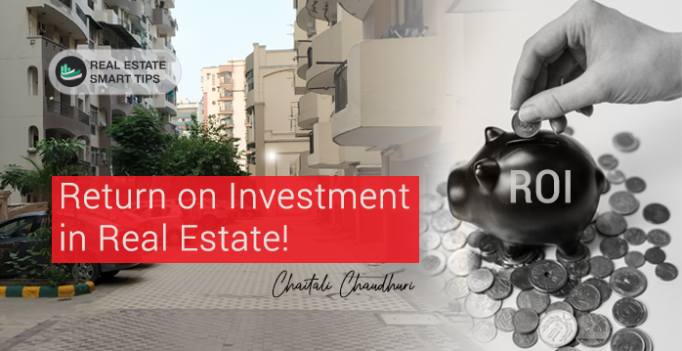“The best investment on earth is earth.” -Louis Glickman. Investment in real estate, specifically rental properties, is one of the safest investments. Your wealth will breed because of the monthly cash flow, long-term appreciation, and tax benefits of owning and running rental properties. Haven’t done anything like this before? Don’t worry! Rental property investment is for everyone. Enjoy a return on investment in real estate.
Getting the perfect property and understanding if the investment would eventually payoff is the most difficult part. This is more problematic if you are a first-time property buyer. Accordingly, understanding the essentials of investing in a rental property is important. Most importantly, how to discover a property’s return on investment (ROI) is exceedingly essential.
ROI, to put in simple words, may be measured as the percentage of the equity investment total cost. This write-up aims to explain the basics of ROI.
Role of Return on Investment in Real Estate
Make out the typical returns on a property to get an impression of your costs. If the predicted revenue balances them in a manner that makes sense.
Understanding ROI Calculations
The cost practice and the out-of-pocket approach are the two most used ways to compute the ROI. Listed below are basic examples of each method. Both examples do not reflect any potential rental revenue or enduring expenditures.
1. The Cost-Based Approach
The cost system divides a property’s investment financial reward by the property’s outflows to determine ROI.
2. Out-of-Pocket Strategy
Many real estate investors choose the out-of-pocket approach because it offers a better ROI. Consider making a down payment and availing a loan to pay for the same home as in the preceding situation.
Real Estate Investors Can Get a Good ROI: How?
The definition of a “good” ROI varies depending on the investor. There is a straight connection between risk lenience and returns when it comes to real estate investments. On the other hand, more risk-averse investors may agree to take lesser returns in exchange for more constancy.
To invest in real estate, you do not need to own a piece of land. It is possible to expand one’s portfolio without owning any real estate by purchasing a REIT. Wondering how? Well, this trades on an exchange like equities. REIT returns, to put in simple words, are more uncertain than out-of-date real estate investments.
Can Costs Lower Your ROI?
You must sell the property to enjoy your ROI. It’s usual for a property to fail to sell at its market value, dropping your projected ROI.
Other fees are linked with selling real estate, say, painting and landscaping work. When computing a property’s selling price, publicizing charges, appraisal fees, and broker commissions should as well be counted in. It is important to clear the property’s mortgage before the sale proceeds.
How Do You Pay Taxes on Rental Property When You Sell it?
When you sell an investment property and make a profit over your cost basis, the IRS considers the difference as a capital gain. Post a year of ownership, the property is subject to capital gain tax. Regular income is taxed at a higher rate if it is reserved for less than a year. Besides it is determined by the same rules as other sources of income.
What Taxes Apply to Investment Income?
Rent earned from a property you own must be reported on IRS Schedule E. This is important when you submit your taxes for the year. Furthermore, you may eradicate any associated costs. This is important to reach at your overall profit or loss on the property you’re selling for the year.
The Final Thoughts
You may work out how much money you’ve earned on a real estate investment by computing your ROI. Additionally, you may use it to compare the return on real estate to other potential investments.Finding a precise return on your real estate investment may be more problematic. This is particularly, if your expenditures and any possible cash flow varysuggestively from those mentioned above.It is important to contact a tax specialist who is knowledgeable with the real estate industry regulations for tax. It is always better toconsult with a licensed professional for guidanceregarding your specific situation.
If you found the post helpful, please don’t keep it to yourself. Pass it on to help others too. Like and Share; Follow us on Twitter and Facebook page. You’ll be subsequently; notified each time a new post comes up.


Be the first to comment